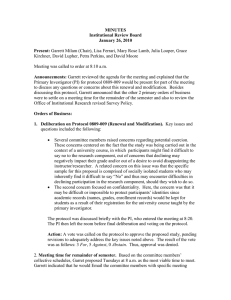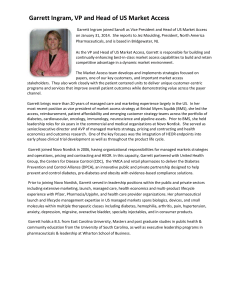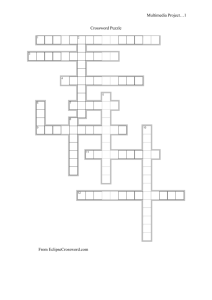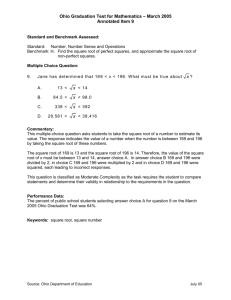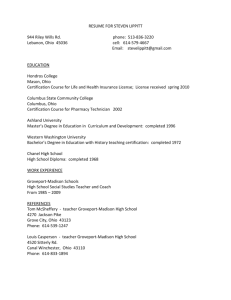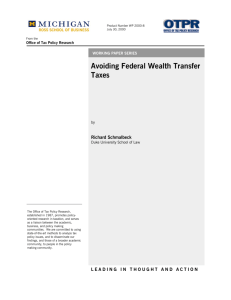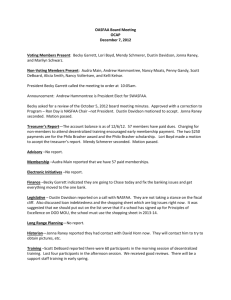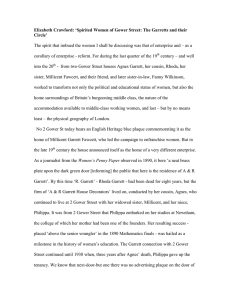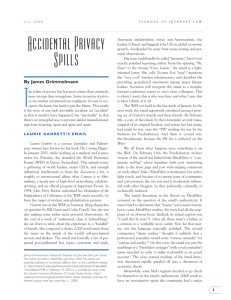school of communication - College of Arts and Sciences
advertisement
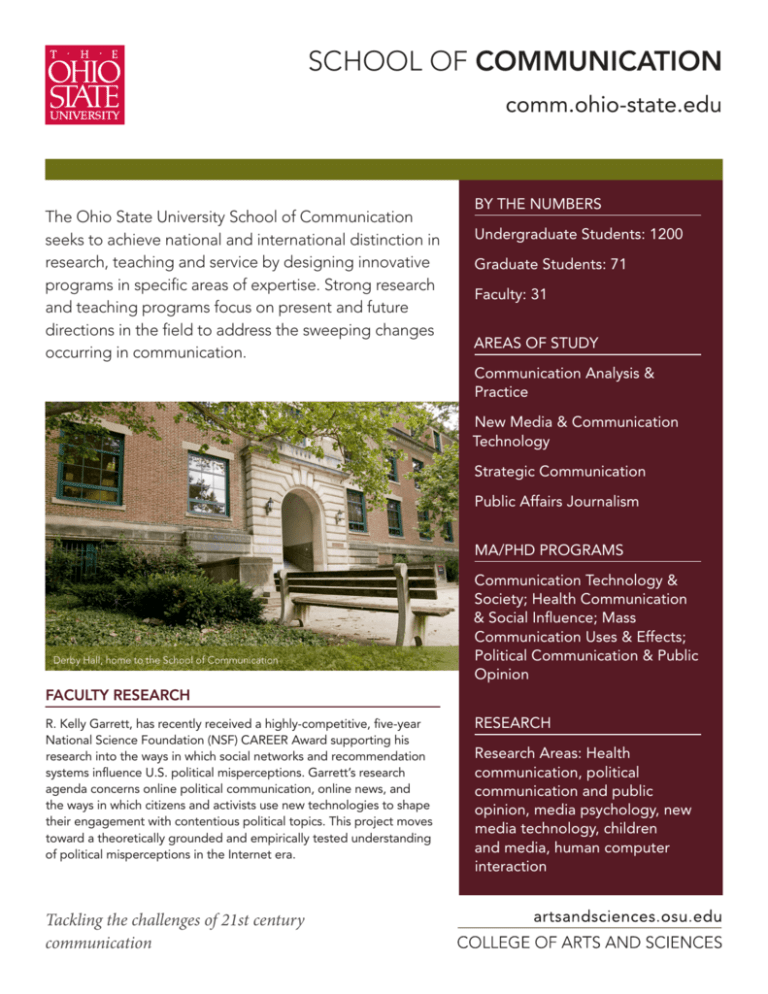
SCHOOL OF COMMUNICATION comm.ohio-state.edu The Ohio State University School of Communication seeks to achieve national and international distinction in research, teaching and service by designing innovative programs in specific areas of expertise. Strong research and teaching programs focus on present and future directions in the field to address the sweeping changes occurring in communication. BY THE NUMBERS Undergraduate Students: 1200 Graduate Students: 71 Faculty: 31 AREAS OF STUDY Communication Analysis & Practice New Media & Communication Technology Strategic Communication Public Affairs Journalism MA/PHD PROGRAMS Derby Hall, home to the School of Communication Communication Technology & Society; Health Communication & Social Influence; Mass Communication Uses & Effects; Political Communication & Public Opinion FACULTY RESEARCH R. Kelly Garrett, has recently received a highly-competitive, five-year National Science Foundation (NSF) CAREER Award supporting his research into the ways in which social networks and recommendation systems influence U.S. political misperceptions. Garrett’s research agenda concerns online political communication, online news, and the ways in which citizens and activists use new technologies to shape their engagement with contentious political topics. This project moves toward a theoretically grounded and empirically tested understanding of political misperceptions in the Internet era. Tackling the challenges of 21st century communication RESEARCH Research Areas: Health communication, political communication and public opinion, media psychology, new media technology, children and media, human computer interaction FACULTY RESEARCH ZHENG JOYCE WANG received NSF- funding for studies of emotion and motivation in mediated information processing, examining how they relate to cognition and choice behavior. She uses dynamic models to explain their mutual influences, testing them with real time laboratory data and real world data. This work helps create more effective communication messages, and explain and predict interactions with and adaptations to our continuously changing information environment. MICHAEL SLATER The National Institutes of Health supports Slater’s studies of media effects on beliefs, behavior and persuasion processes, primarily in public health (substance abuse/cancer prevention). He is currently funded to look at alcohol advertising and media coverage of health, crime, and injuries--and how such coverage impacts risk perceptions and support for health-related public policies. Students in Joyce Wang’s new, state-of-the-art Communication and Psychophysiology Lab FACILITIES New state-of-the-art labs: multimedia teaching & research; children and media research; human computer interaction/focus groups; survey and statistics research and instruction; audience response; multimedia design and research; gaming research; media integration; and the Miller Focus Group and Seminar Room. WHAT SETS US APART Rigorous and innovative curriculum High profile internships Undergraduate research opportunities Internationally renowned faculty Top 5 among high impact communication programs State-of-the-art multimedia classrooms PARTNERSHIPS New area for undergrads: new media and communication technology, focus area explores how technology is transforming the field of communication by integrating course work from communication, computer science, design, psychology, and business to facilitate understanding of interactive technology, evaluating user experience and communicating with users from varying levels of technical proficiency. Faculty include: Kelly Garrett, Brandon Vanderheide, Jessie Fox, Roselyn Lee, and David DeAndrea Multiplatform labs and podcasting studio SCHOOL OF COMMUNICATION THE OHIO STATE UNIVERSITY 3016 DERBY HALL, 154 N OVAL MALL COLUMBUS, OHIO 43210 (614) 292-3400 Director: Carroll Glynn 5.2012-SR

